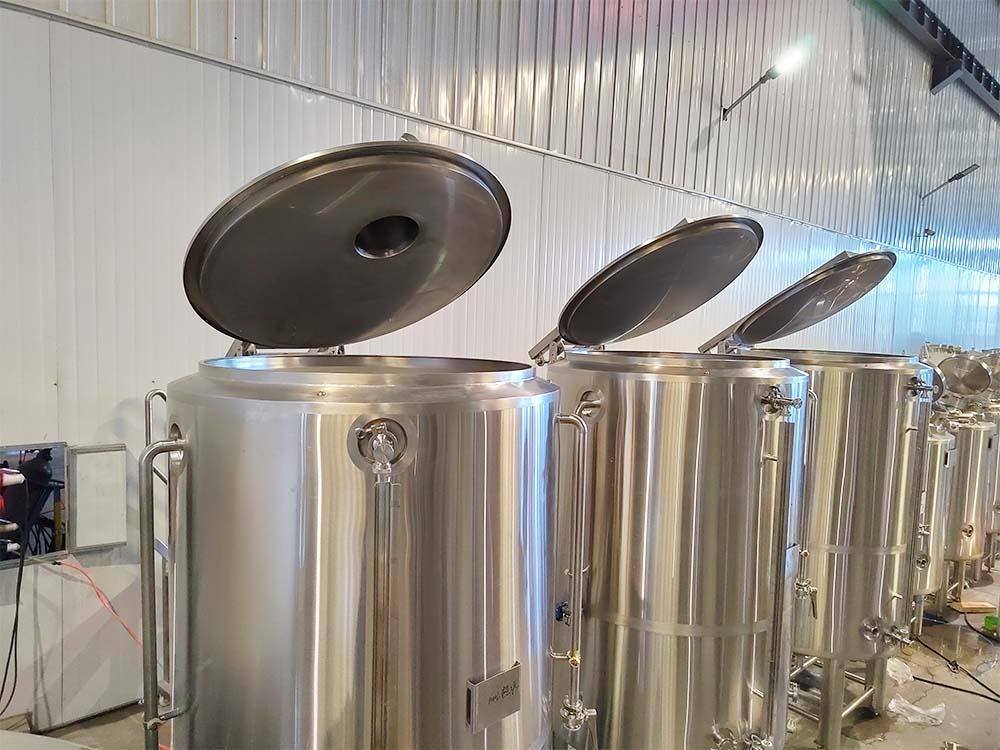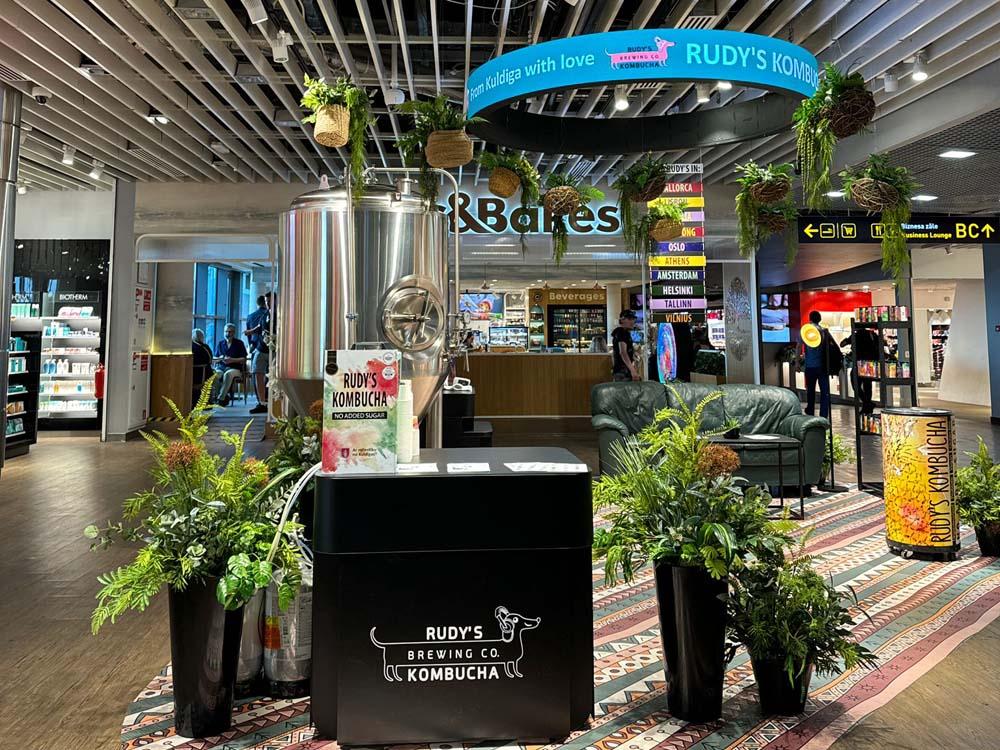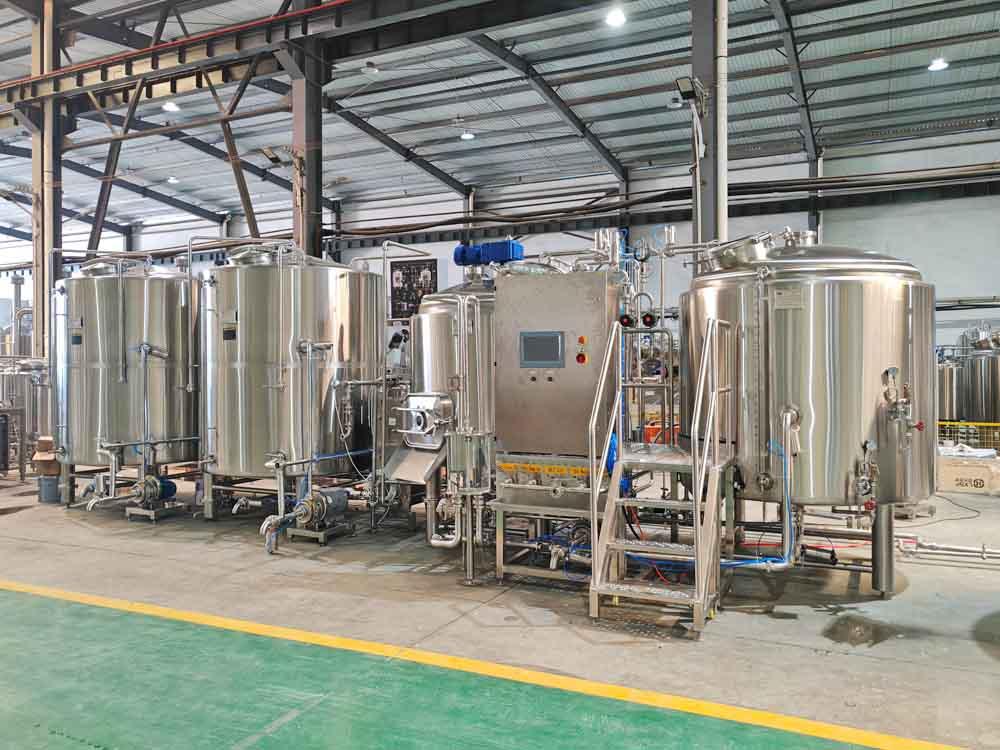What equipment does a complete industrial kombucha brewing system include?
- May 23, 2024
- 62
- tiantai
Now, more and more popular. Except for inquiry of Kombucha brewing equipment, some customer is also asking whether it is ok to brew Kombucha without sugar or alcohol. So, do you know this?
A complete industrial kombucha brewing system typically includes various pieces of equipment to facilitate the brewing process efficiently and at scale. Here's a list of common equipment found in such systems:
Fermentation Tanks: Large stainless steel tanks with precise temperature control for fermenting the kombucha. These tanks often have capacities ranging from hundreds to thousands of gallons.
Heat Exchange System: Used for both cooling the sweet tea mixture before fermentation and heating the fermented kombucha for pasteurization or other processing steps.
Pumps and Piping: To move the liquid between different stages of the brewing process, such as transferring from fermentation tanks to storage tanks or bottling lines.
Mixing and Agitation Equipment: Ensures even distribution of ingredients and promotes fermentation.

Monitoring and Control Systems: Sensors for monitoring temperature, pH levels, and other parameters critical to the brewing process, as well as control systems to adjust conditions as needed.
Storage Tanks: After fermentation, kombucha is often stored in large tanks before further processing or packaging.
Filtration System: Used to remove yeast and other solids from the kombucha before packaging, ensuring clarity and stability.
Pasteurization Equipment: Optional, but some industrial kombucha producers choose to pasteurize the finished product to extend its shelf life.
Bottling and Packaging Machinery: Equipment for filling bottles or other containers with kombucha, capping or sealing them, and labeling.
Cleaning and Sanitizing Equipment: Essential for maintaining sanitary conditions throughout the brewing process to prevent contamination.
Quality Control Equipment: Laboratory equipment for testing the quality and consistency of the kombucha, including microbial analysis and taste testing.
Utilities: Infrastructure for water, steam, electricity, and other utilities required to operate the brewing system.
These are the foundational components, but the specific configuration and additional equipment may vary depending on factors such as production capacity, desired product quality, and budget.
Setting up a Kombucha brewing factory need considering so much things. Welcome to contact us to get quote for industrial Kombucha brewing equipment by [email protected]. Let us assist you in setting up Kombucha factory and customize Kombucha brewing equipment together. Cheers!
Edited by Nicole
Sales manager | Tiantai beer equipment
Email: [email protected]
A complete industrial kombucha brewing system typically includes various pieces of equipment to facilitate the brewing process efficiently and at scale. Here's a list of common equipment found in such systems:
Fermentation Tanks: Large stainless steel tanks with precise temperature control for fermenting the kombucha. These tanks often have capacities ranging from hundreds to thousands of gallons.
Heat Exchange System: Used for both cooling the sweet tea mixture before fermentation and heating the fermented kombucha for pasteurization or other processing steps.
Pumps and Piping: To move the liquid between different stages of the brewing process, such as transferring from fermentation tanks to storage tanks or bottling lines.
Mixing and Agitation Equipment: Ensures even distribution of ingredients and promotes fermentation.

Monitoring and Control Systems: Sensors for monitoring temperature, pH levels, and other parameters critical to the brewing process, as well as control systems to adjust conditions as needed.
Storage Tanks: After fermentation, kombucha is often stored in large tanks before further processing or packaging.
Filtration System: Used to remove yeast and other solids from the kombucha before packaging, ensuring clarity and stability.
Pasteurization Equipment: Optional, but some industrial kombucha producers choose to pasteurize the finished product to extend its shelf life.
Bottling and Packaging Machinery: Equipment for filling bottles or other containers with kombucha, capping or sealing them, and labeling.
Cleaning and Sanitizing Equipment: Essential for maintaining sanitary conditions throughout the brewing process to prevent contamination.
Quality Control Equipment: Laboratory equipment for testing the quality and consistency of the kombucha, including microbial analysis and taste testing.
Utilities: Infrastructure for water, steam, electricity, and other utilities required to operate the brewing system.
These are the foundational components, but the specific configuration and additional equipment may vary depending on factors such as production capacity, desired product quality, and budget.
Setting up a Kombucha brewing factory need considering so much things. Welcome to contact us to get quote for industrial Kombucha brewing equipment by [email protected]. Let us assist you in setting up Kombucha factory and customize Kombucha brewing equipment together. Cheers!
Edited by Nicole
Sales manager | Tiantai beer equipment
Email: [email protected]




